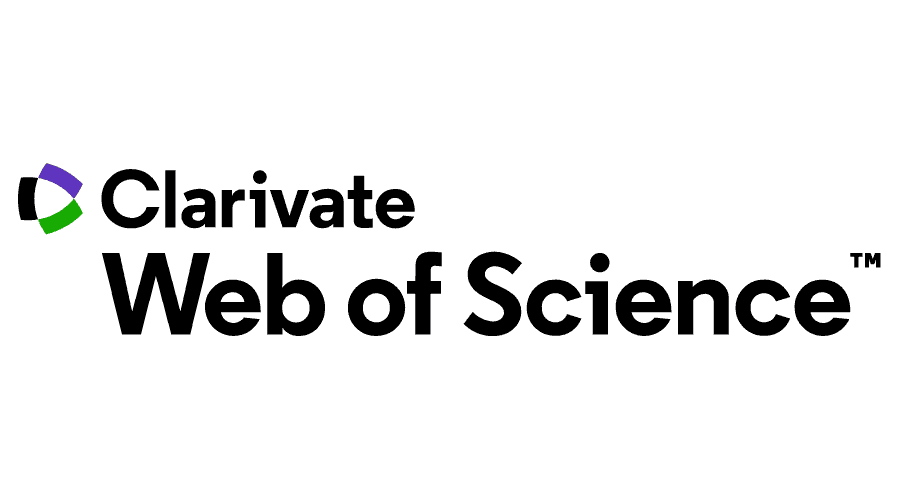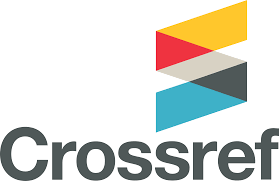Abstract
Research Aims: This study examines the effects of organisational culture, employee motivation, performance appraisal, and the work environment as a moderator on job satisfaction in Bali's hotel industry, addressing gaps in HRM literature.
Design/Methodology/Approach: Data were collected via structured questionnaires from 305 hotel employees in Bali. SmartPLS software analysis included model evaluation, validity testing, and path coefficient and moderator analyses.
Research Findings: Organisational culture, employee motivation, and performance appraisal significantly influence job satisfaction. The work environment moderates these relationships, enhancing the positive effects of HRM practices.
Theoretical Contribution/Originality: This study highlights the work environment’s pivotal role in strengthening HRM practices' impact on job satisfaction. It offers insights for hotel managers and HR professionals to enhance employee satisfaction and organisational performance.
Managerial Implication in the South East Asian Context: Fostering a positive work environment is critical in Southeast Asia. Managers should create collaborative and well-resourced workplaces to align organisational culture, motivation, and performance appraisal with employee satisfaction.
Research Limitation & Implications: Self-reported data may introduce response bias, limiting the study’s scope to hotel employees in Bali. Future research should explore diverse contexts for broader applicability.
References
Adriansyah, A., & Afiff, A. Z. (2015). Organisational culture, absorptive capacity, innovation performance and competitive advantage: An integrated assessment in Indonesian banking industry. The South East Asian Journal of Management, 9(1), 70-86.
Akpa, V. O., Asikhia, O. U., & Nneji, N. E. (2021). Organisational culture and organizational performance: A review of literature. International Journal of Advances in Engineering and Management, 3(1), 361-372.
Aleinik, V. E., & Rasskazova, O. A. (2022). Corporate culture as a factor in enhancing organizational effectiveness. In Saving Russian Population: Health, Employment, Standards and Quality of Life: Proceedings of the International Scientific and Practical Conference V Rimashevskaya Readings (pp. 108-112).
Ali, S. A. M., Said, N. A., Abd Kader, S. F., Ab Latif, D. S., & Munap, R. (2014). Hackman and Oldham's job characteristics model to job satisfaction. Procedia-Social and Behavioral Sciences, 129, 46-52.
Al-Jedaia, Y., & Mehrez, A. (2020). The effect of performance appraisal on job performance in governmental sector: The mediating role of motivation. Management science letters, 10(9), 2077-2088.
Al-kharabsheh, S. A., Attiany, M. S., Alshawabkeh, R. O. K., Hamadneh, S., & Alshurideh, M. T. (2022). The impact of digital HRM on employee performance through employee motivation. International Journal of Data and Network Science, 7(1), 275-282.
Amabile, T. M., Conti, R., Coon, H., Lazenby, J., & Herron, M. (1996). Assessing the work environment for creativity. Academy of management journal, 39(5), 1154-1184.
Ardyanfitri, H., & Wahyuningtyas, R. (2016). The influence of job career development opportunities, training, occupational safety and health on the job satisfaction of employees in the Telkom University. Journal of Administrative and Business Studies, 2(5), 231-240.
Badan Pusat Statistik Provinsi Bali. (2024a).Banyaknya Wisatawan Mancanegara ke Bali Menurut Kawasan (Orang), 2023. Badan Pusat Statistik. https://bali.bps.go.id/id/statistics-table/2/MTI5IzI=/banyaknya-wisatawan-mancanegara-ke-bali-menurut-kawasan--orang-.html
Badan Pusat Statistik Provinsi Bali. (2024b). Banyaknya Hotel Bintang Menurut Kelas dan Kabupaten/Kota di Provinsi Bali, 2022-2023. Badan Pusat Statistik. https://bali.bps.go.id/id/statistics-table/2/MjIyIzI=/banyaknya-hotel-bintang-menurut-kelas-dan-kabupaten-kota-di-provinsi-bali.html
Bagga, S. K., Gera, S., & Haque, S. N. (2023). The mediating role of organisational culture: Transformational leadership and change management in virtual teams. Asia Pacific Management Review, 28(2), 120-131.
Bakotić, D. (2016). Relationship between job satisfaction and organisational performance. Economic research-Ekonomska istraživanja, 29(1), 118-130.
Bandhu, D., Mohan, M. M., Nittala, N. A. P., Jadhav, P., Bhadauria, A., & Saxena, K. K. (2024). Theories of motivation: A comprehensive analysis of human behavior drivers. Acta Psychologica, 244, 104177.
Bayo-Moriones, A., & de la Torre, R. (2022). Analysing the relationship between QM, performance appraisal and pay for performance. Total Quality Management & Business Excellence, 33(9-10), 1056-1083.
Bayo-Moriones, A., Galdon-Sanchez, J. E., & Martinez-de-Morentin, S. (2021). Business strategy, performance appraisal and organizational results. Personnel Review, 50(2), 515-534.
Cappelli, P., & Conyon, M. J. (2018). What do performance appraisals do?. ILR Review, 71(1), 88-116.
Cassia, F., & Magno, F. (2024). The value of self-determination theory in marketing studies: Insights from the application of PLS-SEM and NCA to anti-food waste apps. Journal of Business Research, 172, 114454.
Chiang, C. F., & Jang, S. S. (2008). An expectancy theory model for hotel employee motivation. International Journal of Hospitality Management, 27(2), 313-322.
Dasanayaka, C. H., Abeykoon, C., Ranaweera, R. A. A. S., & Koswatte, I. (2021). The impact of the performance appraisal process on job satisfaction of the academic staff in higher educational institutions. Education Sciences, 11(10), 623.
de Sombreff, P. V. D. M. (1997). Review of the book Understanding performance appraisal. Social, organizational, and goal-based perspectives., KR Murphy & JN Cleveland, 1997. International Journal of Selection and Assessment, 5, 80-84.
Deci, E. L., & Ryan, R. M. (2000). The" what" and" why" of goal pursuits: Human needs and the self-determination of behavior. Psychological inquiry, 11(4), 227-268.
Diputra, I. K. S., Sanjiwani, P. A. P., & Putra, B. N. K. (2024). Increasing Job Satisfaction Through Transformational Leadership: Mediated by Organisational culture and Work Motivation. Media Ekonomi dan Manajemen, 39(2), 350-371.
Diskienė, D., & Goštautas, V. (2013). A fit between individual and organizational values and its implications for employees’ job satisfaction and performance. Ekonomika, 92(2), 93-107.
Fondas, N. (1991). Corporate culture and organizational effectiveness. New York: Academy of Management.
Girdwichai, L., & Sriviboon, C. (2020). Employee motivation and performance: Do the work environment and the training matter?. Journal of Security & Sustainability Issues, 9(J), 42.
Gold, A. H., Malhotra, A., & Segars, A. H. (2001). Knowledge management: An organizational capabilities perspective. Journal of management information systems, 18(1), 185-214.
Gorenak, M., Edelheim, J. R., & Brumen, B. (2020). The influence of organizational values on job satisfaction of employees. Human Systems Management, 39(3), 329-343.
Habib, S., Aslam, S., Hussain, A., Yasmeen, S., & Ibrahim, M. (2014). The impact of organisational culture on job satisfaction, employess commitment and turn over Intention. Advances in Economics and Business, 2(6), 215-222.
Hackman, J. R., & Oldham, G. R. (1975). Development of the job diagnostic survey. Journal of Applied psychology, 60(2), 159-170.
Hanafi, K. M., & Syah, T. Y. R. (2021). The moderating role of demographic factors in the relationship among job satisfaction, work environment, work motivation to employee performance. JDM (Jurnal Dinamika Manajemen), 12(1), 12-28.
Herzberg, F. (2003). One more time: How do you motivate employees? In Harvard Business Review (Vol. 81, Issue 1). Brighton, Massachusetts: Harvard Business Review Press.
Hidayat, I., Supardi, E., Anwar, A., & Anggiani, S. (2022). Employee Motivation, Job Satisfaction, and Employee Performance: A Literature Review. Dinasti International Journal of Digital Business Management, 3(6), 944-950.
Ibrahim, M., Saputra, J., Adam, M., & Yunus, M. (2022). Organisational culture, employee motivation, workload and employee performance: A mediating role of communication. WSEAS Transactions on Business and Economics, 19, 54-61.
Ithnin, N. S., Ismail, M. D. D., Ismail, A., & Tharima, A. F. (2022). Drivers and outcome of motivation to improve work through learning: Evident from South East Asia. The South East Asian Journal of Management, 16(1), 118–138.
Jigjiddorj, S., Zanabazar, A., Jambal, T., & Semjid, B. (2021). Relationship between organisational culture, employee satisfaction and organizational commitment. In SHS Web of Conferences (Vol. 90, p. 02004). Les Ulis: EDP Sciences.
Jumady, E. (2022). The Role of Organisational culture, Work Environment and Motivation in Improving Employee Performance. Advances in Human Resource Management Research, 1(1), 26-33.
Karatepe, O. M., & Uludag, O. (2007). Conflict, exhaustion, and motivation: A study of frontline employees in Northern Cyprus hotels. International Journal of Hospitality Management, 26(3), 645-665.
Kosasih, K., Diwyarthi, N. D. M. S., & Rezeki, F. (2023). The influence of the work environment and career development on employee productivity mediated by job satisfaction. Jurnal Apresiasi Ekonomi, 11(2), 367-377.
Kuenzi, M., & Schminke, M. (2009). Assembling fragments into a lens: A review, critique, and proposed research agenda for the organizational work climate literature. Journal of management, 35(3), 634-717.
Kusumah, A. I., Indrayanto, A., & Setiawan, I. (2021). A mediating and moderating role on employee performance appraisal. Management Research Review, 44(12), 1639-1659.
Lee, M., & Kim, B. (2023). Effect of employee experience on organizational commitment: Case of South Korea. Behavioral Sciences, 13(7), 521.
Marewo, N. T., Mutongi, C., Nyoni, T., & Nyoni, S. P. (2020). The impact of employee motivation on employee performance. International Journal of Advance Research and Innovative Ideas in Education, 6(6), 1487-1502.
Oldham, G. R., & Fried, Y. (1987). Employee reactions to workspace characteristics. Journal of Applied Psychology, 72(1), 75-80.
O'Reilly III, C. A., Chatman, J., & Caldwell, D. F. (1991). People and organisational culture: A profile comparison approach to assessing person-organization fit. Academy of management journal, 34(3), 487-516.
Rahmat, S. T. Y., & Rina, A. (2019). The relationship between organisational culture and job satisfaction towards organizational commitment and employee performance. Russian Journal of Agricultural and Socio-Economic Sciences, 88(4), 144-152.
Seashore, S. E., & Taber, T. D. (1975). Job satisfaction indicators and their correlates. American behavioral scientist, 18(3), 333-368.
Shea, J. J. (2003). The performance appraisal question and answer book [Book Review]. IEEE Electrical Insulation Magazine, 19(4), 72-72.
Soetjipto, N., Soelistya, D., Priyohadi, N. D., Widyawati, N., & Riswanto, A. (2021). The effects of goal orientation and organisational culture on performance appraisal of employees. The Journal of Asian Finance, Economics and Business, 8(4), 1047-1056.
Song, C., & Mistry, T. G. (2022). Employee Performance Appraisal in the Hospitality Industry. Journal of Hospitality & Tourism Cases, 10(4), 15-20.
Stephen, E. N., & Stephen, E. A. (2016). Organisational culture and its impact on employee performance and job satisfaction: A case study of Niger Delta University, Amassoma. Higher Education of Social Science, 11(5), 36-45.
Tam, K. P., & Milfont, T. L. (2020). Towards cross-cultural environmental psychology: A state-of-the-art review and recommendations. Journal of Environmental Psychology, 71, 101474.
Tampubolon, H. (2017). The relationship between employee engagement, job motivation, and job satisfaction towards the employee performance. Corporate Ownership & Control, 13(2), 473-477.
Thomas, J. C., & Davies, M. (2004). Stress, Working Conditions, and Work-Life Events. In Psychopathology in the Workplace (pp. 38-57). Abingdon, Oxfordshire: Routledge.
Vischer, J. C. (2007). The effects of the physical environment on job performance: towards a theoretical model of workspace stress. Stress and health: Journal of the International Society for the Investigation of Stress, 23(3), 175-184.
Vo, T. T. D., Tuliao, K. V., & Chen, C. W. (2022). Work motivation: The roles of individual needs and social conditions. Behavioral Sciences, 12(2), 49.
Recommended Citation
Ginting, Yanti Mayasari; Rismawati, Rismawati; and Aisyah, Siti
(2024)
"The Moderating Role of Work Environment in the Relationship Between Organisational Culture, Employee Motivation, Performance Appraisal, and Job Satisfaction in Bali's Hotel Industry,"
The South East Asian Journal of Management: Vol. 18:
No.
2, Article 6.
DOI: 10.21002/seam.v18i2.1775
Available at:
https://scholarhub.ui.ac.id/seam/vol18/iss2/6












